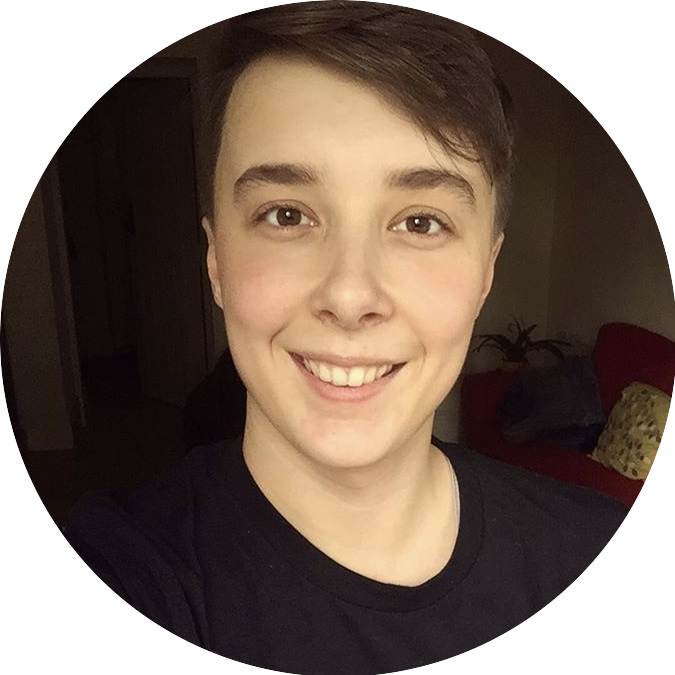Togetherness in COVID-19: Finding new collaborators in unlikely places
Posted: May 06, 2020
The fourth instalment of Reflections in the time of COVID-19 comes from Madeleine Pownall and Eric Banks, two graduate students from the United Kingdom
The COVID-19 pandemic has prompted us to reconsider every facet of our life, including how we interact, how we shop, how we work together, and how we ‘do’ academia. We write as two people who have found ourselves joining together in solidarity over the past few weeks of uncertainty and change. We are both stout feminists. We both share a fundamental concern for equality and social justice. We also have a rather distinct sense of connection, because we are twins.
We, Eric and Madeleine, have always held a strong feeling of togetherness. We grew up in a household that championed independence and voice, and this largely shaped our feminist outlook on life and its many (im)possibilities. Despite our notable differences (growing up, no one could fathom that we were related, let alone twins), we are lucky, in that we have always fundamentally tolerated and respected each other.
Since leaving school four years ago, our career paths have waived off in increasingly different directions. Eric, a transgender man, is a social-worker, with an expertise in working with young people. Madeleine, a cisgender woman, is a social psychology PhD student, researching the impact of gender stereotypes. Pre-COVID, we would often chat about work, nodding encouragingly at discipline-specific anecdotes, feeling satisfied in the knowledge that our twin is doing important work.
When coronavirus entered the public consciousness, as with everything else, the way that we interacted changed. Like many people, we initially responded to COVID-19 with anxiety, uncertainty, and concern. We spent long evenings in March huddled over video calls together, collectively pondering the future of the world as we know it. These were scary times of isolation. In more recent weeks, however, our collective tone has somewhat shifted. We have begun to find solace, in place of previous panic.
In early April, prompted by a lonely birthday (the first in history that we have not celebrated together), we started to unravel some of the complexities of each other’s disciplines together. Instead of skirting around the jargon and specificities of our work, we jumped in, feet first. We explained our work, in all its nuanced, messy, frustrating glory. We started to realize that our disciplines had distinct commonalities that we had never appreciated before. Eric’s experiences of social work with young people was ultimately informed by a feminist psychological position. Critical approaches to developmental psychology were embedded throughout his approach to direct work with young looked-after children. Madeleine’s PhD work was interweaved with human rights legislation and social policy. Our ‘worlds’ were not as different as we once thought.
Importantly, in starting this conversation this, we have since begun to build a productive collaboration, built firmly on our collective appreciation of each other’s viewpoints. A few weeks ago, we sat down to write an academic paper together, each contributing with expertise that is rooted firmly in a feminist agenda. In the past few days, we have grown increasingly excited at the possibilities that our newfound shared language may have.
We have since come to realize that the COVID pandemic has not only shaped how we approach our work, and the sensitive challenges that they both encompass, but also how we see our expertise fitting within a larger agenda. Social distancing and isolation have encouraged us to seek out things that we share, rather than things that keep us apart. We crave collectiveness, experiences and insights that can be shared and appreciated with others. In opening our minds to the possibility of interdisciplinary working, we have curated a new way of ‘doing’ social work and psychology. A way that feels authentic, connected, and personal.
Coming from different perspectives also means that we arrive with an awareness of each other’s’ expertise and experiences. As two people who are early on in our respective careers, this collaborative experience has been useful in lamenting our own sense of expertise together. Grappling with one’s own authority over expertise and academic ‘voice’ can be a challenge for many early-career feminist researchers. Given that our newfound collaboration is underpinned with a fundamental respect for one another, we have made some progress in destabilizing some of the marginalization, hierarchy, and control that can so often silence early-career work. This too feels like an exciting, liberating way of working. A collaboration rooted in mutual respect provides promise for a future of academia that champions listening over competing.This will now likely inform and guide all of our future work with colleagues within our own discipline.
We hope that in sharing our story of collaboration in unlikely places, we highlight how our collective yearning for togetherness, prompted by the new norm of social distancing, can be satisfied in unique spaces. Working in a partnership that is rooted in mutual respect, listening, and an appreciation of each other’s expertise, can radically disrupt hierarchy and power imbalances that can negatively affect early-career feminists. It goes without saying that COVID-19 is an overwhelmingly difficult time for everyone. If we continue to search for what unites us, there may be a capacity for unique and unforeseen opportunities to listen, learn and share.
Author Bios

Madeleine Pownall is a PhD student in social psychology at the University of Leeds (UK). Her PhD investigates the impact of gender stereotyping on social cognition.

Eric Banks is a MA social work student from the University of Sheffield. His research interests include transgender youth and social work practice.
